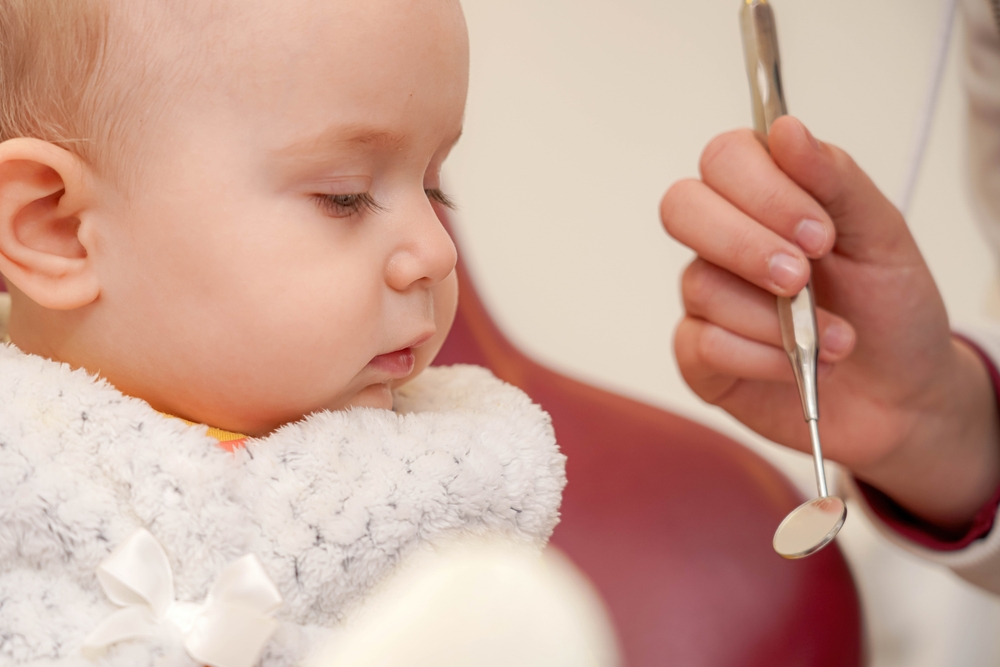
How Often Should You Take Your Child to the Dentist?
Taking your child to the dentist might feel like just another item on the endless parenting to-do list, but it’s one of the best things you can do for their health. Regular dental visits help catch problems early and build healthy habits that last a lifetime. But how often should you go? Let’s break it down so you can feel confident about your child’s dental care routine.
When Should You Take Your Child to the Dentist for the First Time?
The American Academy of Pediatric Dentistry and the Canadian Academy of Pediatric Dentistry both recommend that children visit the dentist by age one or six months after their first tooth appears, whichever comes first. If your child is born with natal or neonatal teeth, it’s a good idea to schedule a dental visit even earlier to ensure their oral health is on track from the start.
Preparing Young Children for Dental Visits
Creating a positive experience starts with preparation, and small steps can make a big difference. Begin by focusing on good oral hygiene habits at home. Encourage your child to brush their teeth twice a day and add daily flossing to the routine. Don’t forget to clean their tongue—using a tongue scraper can be a helpful addition.
It’s also important to set realistic expectations. Young children may cry, resist, or refuse to open their mouths during their first dental visit, and that’s okay. Pediatric dentists are trained to handle these behaviours with patience and care, ensuring a proper exam even when a child isn’t entirely cooperative.
To make the experience smoother:
- Book early morning appointments for younger children. They’re typically more alert and less cranky earlier in the day.
- Introduce books or shows featuring characters like Dora, Curious George, or Peppa Pig visiting the dentist. This makes the idea of a dental visit feel fun and familiar.
- If there are older siblings, bring your younger child along to their exams. Watching their sibling interact with the dentist in a positive way can help younger children feel at ease.
For parents, managing your own feelings about dental visits is equally important. If you have dental anxiety, it’s worth reflecting on those fears to avoid passing them on to your child. A calm, positive outlook will reassure them that visiting the dentist is nothing to worry about.
How Often Should You Take Your Child to the Dentist?
Regular dental checkups are an important part of maintaining your child’s oral health. For most children, visiting the dentist every six months is ideal. However, the frequency may vary depending on their needs:
- Children at higher risk for cavities may need to visit every three months.
- For kids with special behaviour needs or high cavity risks, frequent visits can help them feel more comfortable and build trust with the dental team.
- Some children might require three-month visits to address recurring stains, which can result from sources like certain foods, bacteria, or even activities like swimming due to chlorine exposure.
Be mindful of products like mouth rinses, as some contain ingredients that may stain teeth. If this happens, a dentist can provide guidance to help you manage or prevent the issue.
Read our resource: How Do You Know If Your Child Has Cavities?
Dentist Visits for Children 1-2 Years (Toddlers)
For children between one and two years, dental visits are short and focused on ensuring healthy development. The dentist will perform a brief examination to check for any oral abnormalities and assess the growth of teeth and gums. Much of the visit is about educating parents—covering oral hygiene, nutrition, and simple at-home practices that help prevent issues.
A typical appointment may include the application of topical fluoride, with parental consent, to strengthen your child’s teeth. For the examination itself, a knee-to-knee exam is often used. In this setup:
- The parent and dentist sit facing each other with a pillow between them.
- Your child lies on your lap, facing you, and is gently leaned back onto the dentist’s lap. This approach allows your little one to stay close to you, providing comfort and reassurance.
Dentist Visits for Children 3-6 Years (Preschoolers)
At this age, the focus shifts to helping children become comfortable with the dental environment. Most children are encouraged to sit on the dental chair by themselves. If your child feels nervous, you can hold their hand or even sit with them on the chair.
The dentist will perform a full examination, often including dental X-rays to get a better look at their teeth and jaw development. Whether X-rays are done depends on your child’s behaviour, and experienced staff are on hand to assist. If X-rays or other procedures are necessary but your child struggles to cooperate, options like sedation or general anaesthesia may be discussed for their comfort.
The appointment also includes a dental cleaning, tailored specifically for children. Unlike adult cleanings, these focus more on preventing cavities and are carried out by hygienists trained in working with kids. Managing a child’s behaviour during the cleaning is a big part of the process, and the dental team works to make it as smooth and stress-free as possible.
Dentist Visits for Children 6-10 Years (School Age)
By this stage, most children are comfortable sitting in the dental chair on their own and can undergo cleanings with ease. For those who might still need extra support, the dental team is there to provide assistance and reassurance.
Regular cleanings and checkups continue to focus on keeping teeth healthy and addressing any issues, such as cavities or plaque buildup. These visits help reinforce good oral hygiene habits as children grow.
Dentist Visits for Teens
Teenagers often have unique dental needs, especially if they have braces. As teens become more independent, the focus shifts from educating parents to educating teens directly.
They’re encouraged to take responsibility for their oral health, including brushing, flossing, and managing their diet. Since many teens have pocket money and greater control over what they eat, nutritional consultations are often part of their checkups to help them make better choices for their teeth.
These appointments are a step toward fostering lifelong habits and independence in oral care.
If Your Child Needs Braces
A pediatric dentist will assess your child’s teeth to determine whether a visit to an orthodontist is needed. If so, the orthodontist will conduct a complimentary exam to evaluate your child’s dental alignment and growth patterns. From there, they’ll begin planning for any potential orthodontic treatment, ensuring your child’s needs are anticipated and addressed early.
Special Needs and Neurodiverse Children Should Be Seen by a Specialist
Children with special needs or neurodiverse conditions often benefit from care tailored to their unique requirements. General dentists may refer children with anxiety, phobias, or behavioural challenges to specialists who have additional training in these areas. At Kids Dental Group, the team is highly trained to support children who are medically compromised or have severe dental fear.
The clinic is designed to meet the needs of children with special requirements, including those with neurodiverse conditions or syndromes such as Down syndrome. Staff undergo specialized training to understand and manage these unique needs effectively, ensuring a comfortable and safe experience for every child.
For example, children with Down syndrome may require extra considerations:
- Heart conditions often necessitate premedication before dental procedures.
- Spinal issues, like cervical spine instability, may limit neck movement during exams.
- A larger tongue size, common among children with Down syndrome, may require adjustments in how the examination or cleaning is performed.
Specialized care involves recognizing and adapting to these needs, and facilities like ours at Kids Dental Group are equipped to provide this level of support. The goal is to ensure that every child, regardless of their circumstances, receives compassionate and comprehensive dental care.
Kids Dental Group Can Help
Taking care of your child’s dental health doesn’t have to feel overwhelming. If you’re concerned about your child’s breath, teeth, or anything else, we’re here to help.
At Kids Dental Group, we’re happy to answer your questions and provide the care your child needs.
Feel free to reach out to schedule a checkup—we’d love to support you and your family on this journey.
